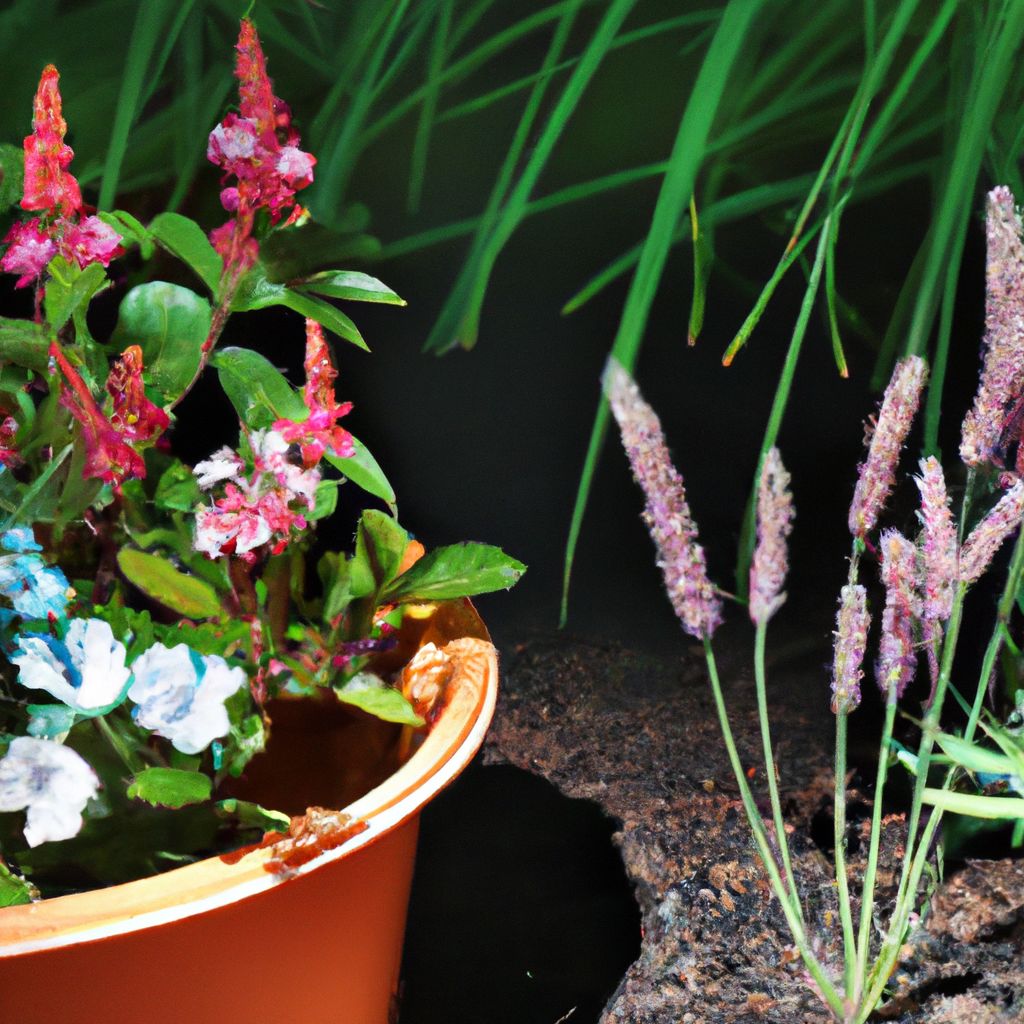Azomite is an exceptional supplement that can significantly improve plant health and productivity. This unique volcanic mineral product contains over 70 essential trace elements that plants need to reach their full potential.
What is Azomite?
Azomite is a natural silica ore sourced from an ancient volcanic ash deposit in Utah. It provides a rich concentration of minerals and micronutrients that enhance soil quality and plant growth. Azomite’s complex mineral composition sets it apart from common fertilizers.
Key Benefits of Using Azomite for Plants
Incorporating Azomite into your gardening offers numerous advantages for plant health and development:
Improves Nutrient Absorption
The minerals in Azomite, including iron, magnesium, potassium and zinc, improve the soil’s cation exchange capacity. This allows plants to uptake nutrients more efficiently from the soil.
Here are some of the ways Azomite improves nutrient absorption in plants:
- The mineral-rich nature of Azomite enhances the soil’s capacity to hold and release essential nutrients, ensuring plants have steady access.
- Azomite improves the cation exchange capacity of soil, which is key for nutrient absorption by roots.
- With improved nutrient absorption, plants grow stronger and healthier.
- Plants with enhanced nutrient absorption are better equipped to resist diseases and pests.
- Improved nutrient absorption leads to increased yield and higher quality crops.
Enhances Soil Structure
Azomite contains trace elements that aid soil aggregation and porosity. This creates optimal conditions for root growth, drainage and aeration.
Azomite contributes to soil structure in a few key ways:
- The minerals in Azomite act as binding agents to enhance soil aggregation. This leads to improved overall soil structure.
- Incorporating Azomite loosens compacted soil, allowing deeper root penetration.
- Azomite increases the water-holding capacity of soil. This prevents erosion and maintains favorable soil structure.
- It also improves the cation exchange capacity of soil, enhancing its ability to hold and release nutrients.
Boosts Plant Growth
Azomite provides essential nutrients that stimulate vigorous foliar growth and healthy root systems. Plants exhibit enhanced structural strength and faster growth rates.
Here’s how Azomite promotes plant growth:
- It increases nutrient absorption by replenishing soil with minerals like calcium, magnesium, and potassium.
- Azomite improves soil structure, allowing roots to access water and nutrients more easily.
- The minerals in Azomite provide the building blocks for healthy plant cell and photosynthesis.
- Using Azomite leads to increased disease resistance in plants by strengthening plant cells.
- Azomite creates the ideal conditions for plant growth and productivity.
Increases Disease Resistance
The minerals in Azomite support stronger cell walls and healthier plant metabolism. This makes plants more resilient against common diseases and pests.
Azomite boosts disease resistance in plants by:
- Enhancing the plant’s natural immune system to make it more resilient.
- Strengthening plant cell walls to make it harder for diseases to infect.
- Improving soil drainage to reduce conditions that lead to disease.
- Enhancing nutrient absorption so plants can maintain overall vigor and health to fight diseases.
- Providing a balanced mineral supply to equip plants to defend against diseases.
Improves Crop Yield and Quality
With Azomite, plants can reach their full genetic potential in terms of productivity and nutritional quality. You’ll enjoy better tasting and higher yielding fruits, vegetables and flowers.
Here’s how Azomite leads to better crop yield and quality:
- Improved Yield: Azomite can increase crop yields by up to 20%. It promotes healthy plant development for larger, more robust crops.
- Enhanced Quality: Azomite provides minerals that contribute to overall crop quality. It leads to more nutritious, flavorful, and antioxidant-rich produce.
- Increased Nutrient Utilization: The balanced mineral composition of Azomite allows for better nutrient utilization and plant metabolism.
- Disease Resistance: Healthier plants that resist diseases better will in turn produce higher quality crops.
- Genetic Potential: With Azomite, plants can fully express their genetic potential in terms of taste, nutrition, and productivity.

Tips for Using Azomite Successfully
Follow these guidelines to get optimal results from Azomite:
- Use Recommended Application Rates: Avoid overapplication by using recommended amounts based on plant type.
- Incorporate Evenly into Soil: Mix Azomite thoroughly into soil during planting or top dress around established plants.
- Try Foliar Sprays: Foliar sprays of diluted Azomite solution helps absorption through leaves.
- Enrich Compost: Adding Azomite when composting provides mineral-rich finished compost.
- Store Properly: Keep Azomite in a sealed container in a cool, dry place to maintain quality.
- Use Safety Precautions: Wear gloves and masks when handling to prevent irritation.
With smart practices, Azomite can transform your garden into a thriving ecosystem for your plants to prosper. Discover for yourself the impressive benefits of this exceptional supplement.
How Does Azomite Benefit Plants?
While Azomite offers a wide range of benefits, it’s important to understand the specifics of how it leads to healthier, more productive plants. Let’s explore some of the key mechanisms behind Azomite’s positive effects.
Providing Essential Minerals and Nutrients
At its core, Azomite contains a rich concentration of over 70 minerals and trace elements that plants need to grow. This includes:
- Macronutrients: Nitrogen, potassium, calcium, magnesium
- Micronutrients: Iron, manganese, copper, zinc, boron
- Additional Minerals: Silica, carbon, sulfur, sodium
By replenishing the soil with these essential elements, Azomite ensures plants have the raw materials necessary for cells, tissues, and metabolic processes. The minerals also improve soil quality.
Optimizing Soil Structure and Hydration
In addition to its nutritional content, Azomite enhances the structure and water retention capabilities of soil through:
- Improving soil aggregation to create smaller and more stable clumps of soil particles.
- Reducing compaction to allow better root penetration and drainage.
- Increasing the soil’s cation exchange capacity to improve its ability to hold positively charged nutrients and release them to plant roots.
- Augmenting the soil’s capacity to absorb and retain moisture.
Boosting Nutrient Absorption
The minerals in Azomite help plant roots absorb more nutrients from the soil by:
- Increasing cation exchange sites where positively charged plant nutrients can adhere.
- Improving soil permeability for better diffusion and movement of nutrients to roots.
- Enhancing root growth so plants have a larger surface area for taking up nutrients.
- Strengthening cell membranes in root structures to facilitate intake of nutrients.
Promoting Photosynthesis
Nutrients like nitrogen, magnesium, and iron contribute to key components of photosynthesis like chlorophyll and thylakoid membranes. Azomite provides a readily available source of these minerals to optimize photosynthetic activity.
Supporting Strong Cell Structure
Minerals provided by Azomite including silica, calcium, and boron help strengthen plant cell walls. This leads to healthier and more resilient plants that can better resist diseases, pests, and environmental stress.
As you can see, Azomite impacts multiple facets of plant growth and soil health to act as a comprehensive mineral supplement. Its diverse nutrient profile and soil enhancing properties unite to offer true benefits for your garden.
How to Use Azomite for Best Results
To fully capitalize on Azomite’s potential, it’s important to use it properly. Follow these guidelines to incorporate Azomite successfully into your gardening routine.

Follow Recommended Application Rates
Using too little Azomite won’t provide optimal benefits, while excessive amounts can cause nutrient imbalances. Adhere to recommended application rates based on your specific plants and soil conditions.
General garden application rates:
- Vegetables: 1-2 tbsp per sq ft
- Trees: 1 lb per inch of trunk diameter
- Flowers: 1-2 tsp per gallon of soil
Incorporate Evenly into Soil
Distribute Azomite thoroughly and incorporate into the top layers of soil for maximum efficiency.
- For new gardens, mix throughout soil as you prepare beds.
- For existing plants, mix into outer root zones or use as a top dressing.
- After applying, water gently to activate and settle Azomite into soil.
Use as a Supplemental Fertilizer
Apply Azomite along with your regular fertilizer to provide essential trace elements that conventional fertilizers lack.
Try Foliar Spray Applications
For a quick boost, dissolve Azomite in water and spray directly on leaves. Nutrients will absorb directly through foliage.
Add to Compost
Incorporate Azomite when building compost piles or bins. It will enrich the end result with mineral goodness.
Store in Cool, Dry Place
Once opened, keep Azomite bags sealed in a cool, dry place out of direct sun to preserve the mineral’s quality and efficacy over time.
By following these best practices for application, you can be confident your plants will benefit from Azomite’s robust nutritional content.
Azomite Safety Tips and Precautions
While Azomite is an all-natural supplement, it’s important to handle it with care. Follow these tips to safely incorporate Azomite into your garden.
- Use gloves, long sleeves, and a dust mask when handling Azomite to avoid skin or lung irritation. The minerals can be mildly abrasive.
- Avoid inhaling any fine dust particles. Only handle in well-ventilated outdoor areas.
- Store sealed containers out of reach of children and pets. While non-toxic, swallowing Azomite could cause upset stomach.
- Wash hands after working with Azomite. Don’t touch eyes or mouth while applying.
- Read package directions carefully and never exceed recommended application rates. Too much can negatively impact plants.
- Apply Azomite at times when rain is not expected. Avoid having it wash away from target areas.
- When in doubt, consult online guidelines or experts about safe use in your specific garden context.
While Azomite has an excellent safety profile, exercising caution and smart practices will prevent any potential issues. Handle with care so you can unlock the benefits of Azomite safely.

Frequently Asked Questions About Azomite
Before adding a new supplement like Azomite to your garden, it’s normal to have some questions about how to use it and what results to expect. Here are answers to some of the most common Azomite FAQs.
What exactly is Azomite?
Azomite is a complex silica ore mined from an ancient volcanic ash deposit in Utah, USA. It provides over 70 trace minerals and elements in a highly bioavailable powder form that can be mixed into soil.
What are the benefits of using Azomite?
The minerals in Azomite enhance soil quality, boost nutrient absorption, strengthen plants, increase resistance to diseases, improve crop yields and quality, and promote overall plant growth and production.
How should Azomite for Plants be applied?
Mix into soil before planting, side dress around established plants, use as a foliar spray, or add when building compost piles. Follow instructions on packaging for rates.
Is Azomite safe for organic gardening?
Yes, Azomite is OMRI listed for use in organic agriculture. It contains only natural minerals without any synthetic additives.
Can Azomite be used for all plant types?
Azomite is safe for use on all vegetable, fruit, grain, herb, ornamental, and flower varieties. It provides minerals that all plants need.
Will Azomite burn my plants if I use too much?
Over-application of Azomite can negatively impact plants. It’s important to not exceed recommended rates based on square footage or plant sizes.
How often should I apply Azomite?
Most gardens benefit from Azomite application 1-2 times per year. Monitor plant health and soil conditions to determine if more frequent applications are needed.
What safety precautions should I take with Azomite?
Avoid inhaling dust by wearing a mask. Keep away from children. Wash produce before consumption. Use gloves and wash hands after application.
Azomite is a user-friendly supplement with proven benefits. With proper application, it can help achieve your garden goals!
















































